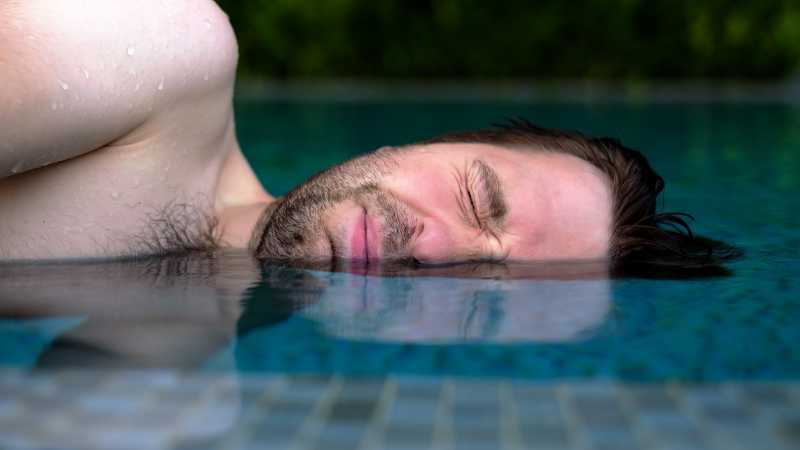Chlorine is one of the most commonly used disinfectants in the world; therefore, chlorine allergy symptoms are more common than you would imagine. According to the American College of Allergy, Asthma, & Immunology, though true chlorine allergy is rare, chlorine sensitivity is more common. It can include symptoms such as wheezing, coughing, and skin irritation. Chlorine sensitivity is aggravated in those with asthma or other respiratory conditions. [1]. Chlorine is widely used in chemical cleansers and to clean water in swimming pools and bottling water plants. Water is usually treated with chlorine for disinfection.

Many people are allergic to chlorine and need minimum exposure to it. This is considered a cell-mediated allergy, and the response to the initial contact is quite delayed. The signs and symptoms are usually observed much later than the initial contact with the allergen. Here are some of the common symptoms of chlorine allergies.
Eye Problems
The first sign of chlorine allergy is usually eye irritations. Since chlorine is used to treat water, it may be in trace amounts in your household water supply. This could cause eye irritations, itching eyes and redness in the eyes. If you have been exposed to chlorine at a public swimming pool, it can cause redness in the eyes. Since the symptoms are usually delayed, you may begin experiencing itching and redness in your eyes after reaching home. Chlorine fumes may also cause itching and redness in your eyes.
Skin Irritations
You may experience certain skin irritations due to contact with chlorine. A study published in the International Journal of Dermatology found that repeated exposure to chlorinated water increases the risk of developing a condition known as swimmer’s eczema. This condition is characterized by dry, itchy skin. The study states that proper rinsing after swimming and using moisturizers can help reduce the risk. [2] Dry skin is often a side effect of contact with chlorine. Swimmers often also get white patches on their skin. However, this is a yeast allergy and is not caused by chlorine. The dryness of the skin, on the other hand, is caused due to the contact with chlorine. The skin may become dry, tight and itchy. The skin may also begin peeling off when it comes to chlorine. Household products containing chlorine and fabrics that have been washed with water containing a high amount of chlorine can cause skin irritations.
Sneezing and Coughing
Some of the other chlorine allergy symptoms include sneezing and coughing. As per the Centers for Disease Control and Prevention (CDC), exposure to chlorine gas released from mishandling pool chemicals causes respiratory symptoms like coughing and wheezing. This happens primarily in people with pre-existing respiratory conditions. The article offers guidelines for the safe handling of pool chemicals. [3] You may start coughing when you come in direct contact with chlorine fumes. If you begin to sneeze and cough as soon as you come in contact with water treated with chlorine or chlorine fumes, this could be a symptom of chlorine allergy. Suppose this is only a one-time thing, and you do not consistently experience these symptoms. In that case, these symptoms usually show sensitivity towards chlorine and not a full-blown allergy.
Stuffed Nose
If you inhale chlorine fumes, you may experience a stuffy nose. The Environmental Protection Agency (EPA) throws light on how long-term exposure to chlorine in drinking water contributes to respiratory issues. EPA regulates chlorine levels in drinking water to ensure they are safe for consumption. This also minimizes the risk of adverse health effects. [4] Your nose becomes stuffed, and you may have difficulty breathing. Chlorine fumes may also give you a headache or trigger any sinus allergies that you may have. Swimming in a pool with water that contains chlorine bleach may also cause stuffiness in the nose. You may have slight respiratory discomfort due to this. This condition is often known as swimmer’s sinusitis.
These are some of the symptoms of chlorine allergy, but people may experience more symptoms. Since different people experience different symptoms of chlorine allergies, it may be worthwhile to notice which are affecting you.
References
- American College of Allergy, Asthma & Immunology – https://acaai.org/allergies/allergic-conditions/skin-allergy/
- McCarthy, S., & Murphy, M. (2023). Pooling the evidence: A review of swimming and atopic dermatitis. Pediatric Dermatology, 40(3), 407-412. https://doi.org/10.1111/pde.15325 – https://onlinelibrary.wiley.com/doi/full/10.1111/pde.15325
- Centers for Disease Control and Prevention(CDC) – https://www.cdc.gov/healthywater/swimming/aquatics-professionals/pool-chemical-safety.html
- U.S. Environmental Protection Agency. Drinking Water Criteria Document for Chlorine, Hypochlorous Acid and Hypochlorite Ion. (External Review Draft.) Environmental Criteria and Assessment Office, Office of Health and Environmental Assessment, Cincinnati, OH. 1992 – https://www.epa.gov/sites/default/files/2016-09/documents/chlorine.pdf
